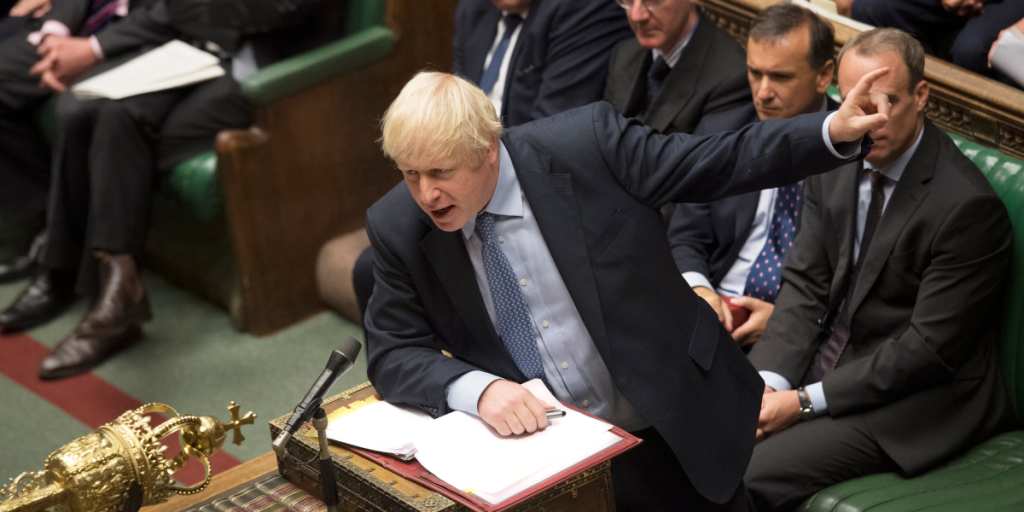In a bold move to assert his authority, Prime Minister Sir Keir Starmer yesterday suspended the Labour whip from at least three MPs amid accusations of persistent rebellion.
The decision, coming just over a week after his one year anniversary as PM, follows a series of backbench revolts, including votes against government welfare reforms.
Reignited debates within the Parliamentary Labour Party
This latest disciplinary action has reignited debates within the Parliamentary Labour Party (PLP) about the effectiveness of “hardman whipping” tactics as a tool for maintaining order. Is it a necessary stick to enforce unity, or a risky gamble that could fracture the party further?
Either way, it’s clear Starmer is rolling the dice on his leadership style.
Suspensions act as a powerful way to instil discipline
On the positive side, whip suspension can be a powerful mechanism for instilling discipline and ensuring the government’s legislative agenda proceeds smoothly. By removing the whip, party leaders signal that repeated defiance will not be tolerated, fostering a culture of loyalty and cohesion. This tactic can deter potential rebels, encouraging MPs to toe the line rather than risk their status and privileges.
In a large majority like Labour’s, where internal divisions are inevitable, such measures help project a united front to the public and opposition, bolstering the Prime Minister’s image as a decisive leader.
Not just Labour
A classic example of where this approach succeeded is Boris Johnson’s handling of Brexit rebels in 2019. Facing chaos over EU withdrawal, Johnson suspended the whip from 21 Conservative MPs who voted against the government on a no-deal Brexit bill. The move was controversial, expelling veteran figures like Ken Clarke and Philip Hammond, but it ultimately paid off. Johnson called a general election shortly after, campaigning on a “Get Brexit Done” slogan that resonated with voters tired of parliamentary gridlock.

The purged party appeared streamlined and purposeful, contributing to a landslide victory and an 80-seat majority. For Starmer, emulating this could streamline Labour’s operations, allowing focus on key policies like economic recovery and regional development – issues close to West Midlands hearts, with its manufacturing heritage and levelling-up needs.
Risks of alienation
However, the cons of whip suspension are stark, particularly in a party as ideologically diverse as Labour. It risks deepening schisms, alienating factions and pushing dissenters towards independence or defection. In Labour’s case, the left-wing undercurrents associated with Jeremy Corbyn and MPs like Zarah Sultana represent a persistent fault line. Corbyn, suspended in 2020 over antisemitism rows and now sitting as an independent, has maintained influence among grassroots activists. Sultana, previously suspended in 2024 for rebelling on the two-child benefit cap, embodies the vocal socialist wing frustrated with Starmer’s centrist pivot.
This latest suspension could significantly backfire by swelling the ranks of these dissidents. With at least three more MPs potentially joining the independent benches, their numbers could grow, amplifying their platform in Parliament and media. Imagine a bloc of left-leaning independents coordinating votes or statements – it might erode Labour’s majority on contentious issues like foreign policy or austerity measures. Worse, it could catalyse the formation of a new party, drawing in disaffected members and providing a rallying point for left-wing voters disillusioned with Starmer’s pragmatism.
Fragmented vote
In the West Midlands, where Labour holds seats in every borough from Wolverhampton to Coventry, such a split might fragment the vote. Left-leaning electors, energised by Corbyn-era ideals of social justice and anti-austerity, could flock to a new entity, echoing the SDP breakaway in the 1980s that weakened Labour for years. Polls already show unease among younger voters over Gaza and welfare; suspensions might fuel perceptions of authoritarianism, eroding trust and echoing the criticism on “uni-party” politics.
Ultimately, Starmer’s strategy hinges on whether the short-term pain yields long-term gain. Like Johnson’s purge, it might consolidate power, but in Labour’s fractious landscape, it could ignite a Corbyn-Sultana-led resurgence. As the dust settles, West Midlands voters will watch closely – after all, party unity affects everything from local funding to national direction. Starmer has chosen the stick; time will tell if a carrot might have been wiser.







